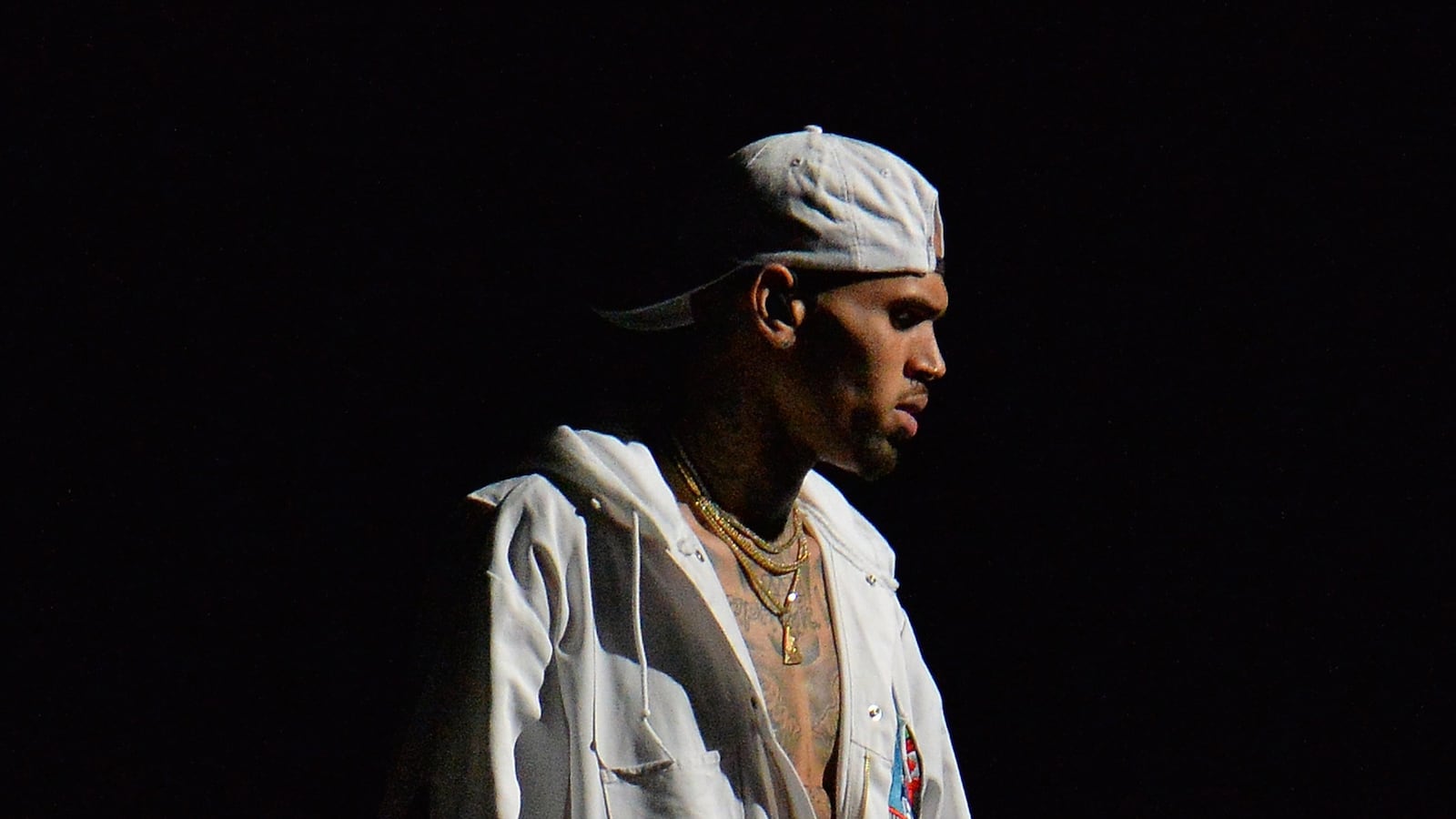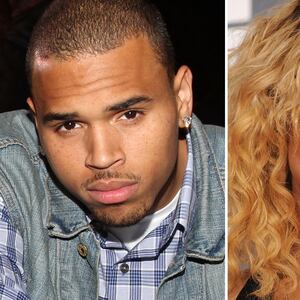Despite what we’ve been endlessly told over the years by Chris Brown, his frequent collaborators, and his army of online supporters, it seems the troublesome R&B singer hasn’t learned his lesson after all.
On Tuesday, TMZ reported that Brown is being investigated for battery after a woman accused him of hitting her in the head so hard that her weave fell out. Police are referring the incident to the Los Angeles City Attorney’s Office. As of yet, there are few details on the matter. No injuries were reported. And it’s unclear whether Brown will actually face charges.
This latest incident marks the continuance of Brown’s legacy as a noted misogynist and threat to women, a designation more than 10 years and several legal battles in the making. Coincidentally—and disturbingly—it was exactly 12 years ago from the date of this most recent report that Brown pleaded guilty to a felony assault against his former girlfriend Rihanna in a case that would rock the entertainment industry, prompt public discussions about intimate partner violence, but leave Brown mostly unscathed and enable him to commit more acts of harm toward women in the future.
In light of the cruel tabloid treatment of (white) female celebrities in the early 2000s being reassessed on the internet, thanks to the Framing Britney Spears documentary, Rihanna’s name—in regards to the aftermath of the assault—has been frequently touted as an appropriate candidate for this sort of cultural retrospection and apologia. The entire media frenzy was a sexist, racist nightmare to behold—from TMZ’s disregard of the singer’s privacy in releasing her mugshot in which she appears battered and bruised to her 20/20 interview wherein Diane Sawyer asks her certain questions that would now be considered victim-blaming—not to mention, the casual victim-blaming many of us millennials witnessed among our peers about the situation, and stand-up comedians using the incident as joke material.
Arguably the most troubling aspect to look back on from this cultural moment, in light of Brown’s behavior in recent years, was his swift embrace by the hip-hop and R&B community and the rehabilitation of his public image despite little displayed accountability. The then-20-year-old embarked on a desperate but insufficient redemption tour that consisted of softball interviews doubling as promotion for his new album Graffiti and sneaker line, a “leaked” apology track called “Changed Man,” and a highly criticized YouTube video apology. Unsurprisingly, it was a public breakdown the singer had while performing “Man in the Mirror” during a Michael Jackson tribute at the 2010 BET Awards that felt like a major turning point in how his remorse was received by the public. Harnessing the emotions of a raw, grieving audience, the publicity stunt earned him a standing ovation and praise from celebrities like Diddy and Jermaine Jackson and, of course, his “Team Breezy” fans watching at home.
While Brown’s apologies and explanations rang hollow to many of his observers in the months following the incident for a number of reasons—his lack of specificity when talking about the assault, his claim that he was being “blackballed” after Graffiti performed more poorly than his previous albums, his anger at the media for repeatedly asking him about the incident, culminating in a full-on tantrum following his sit-down with Robin Roberts—Brown’s fans and the music industry couldn’t wait to see the talented vocalist and dancer become a beloved musician again. And so came Brown’s official comeback, first with his 2011 album F.A.M.E., which was bursting with high-profile collaborators and earned him his first Grammy and Billboard No. 1 spot, and, a year later with Fortune, also debuting at No. 1 and spawning a series of successful singles.
To many, Brown’s success as an artist—not to mention the litany of elaborate, impressive performances he was doling out during this time period—signified a change in who he was as a person. Artists, including women, were comfortable working with him again. His rekindling in 2013 with the woman he had victimized seemingly gave the public permission to forgive his past actions and never rehash the assault again, despite the well-reported fact that domestic violence victims often reunite with their abusers and that doing so is rarely a sign of progress in the relationship (the two broke up a few months after they re-emerged as a couple).

Chris Brown performs at Drai’s Beach Club on Jan. 1, 2016, in Las Vegas, Nevada.
Bryan Steffy/GettyAt that point, Brown had somehow sustained enough goodwill that accusations of violence from several women over the next three years, including that he threatened a woman with a gun inside his home, would be brushed under the rug and lumped together with his frequent physical altercations with men, including fellow musicians Drake and Frank Ocean, that were primarily treated as gossip fodder. (Not to mention the time he mocked Kehlani for attempting to take her own life.)
It wasn’t until 2017, when Brown’s on-and-off-again model girlfriend Karrueche Tran obtained a five-year restraining order from the singer after he threatened to “kill” her, that it felt like his reputation was being properly interrogated again. The popularity of social media at the time and the rise of pop feminism obviously helped more people grasp the severity of his actions and see a pattern. But Brown hardly suffered any material consequences and sustained an even stronger, more defensive army of fans online who readily consumed his new albums and defended his merits as an artist ad nauseum. He was even able to guest on a star-studded Lil Dicky track and publicly gripe (via Lil Dicky) about being judged for “his controversial past.”
In 2019, when news broke that Brown had been arrested by Paris police, along with two other individuals, on charges of aggravated rape, there was a noticeable lack of shock and a sense of fatigue on social media from the people who had been actively criticizing his behavior toward women over the past decade. The lassitude didn’t just come from repeatedly seeing Brown’s name in the news, but the knowledge that since the start of the #MeToo and #TimesUp movements consequences for bad men, especially in the music industry, rarely exist.
With this latest accusation, it’s hard to imagine that the result will be any different for Brown, no matter the outcome, and it’s even harder to imagine a scenario in which the singer would be dropped from his record label or isolated by his industry mates and loyal fans.
According to tweets and memes mocking the predictability of Brown’s behavior, all there’s left to do is be exhausted.


